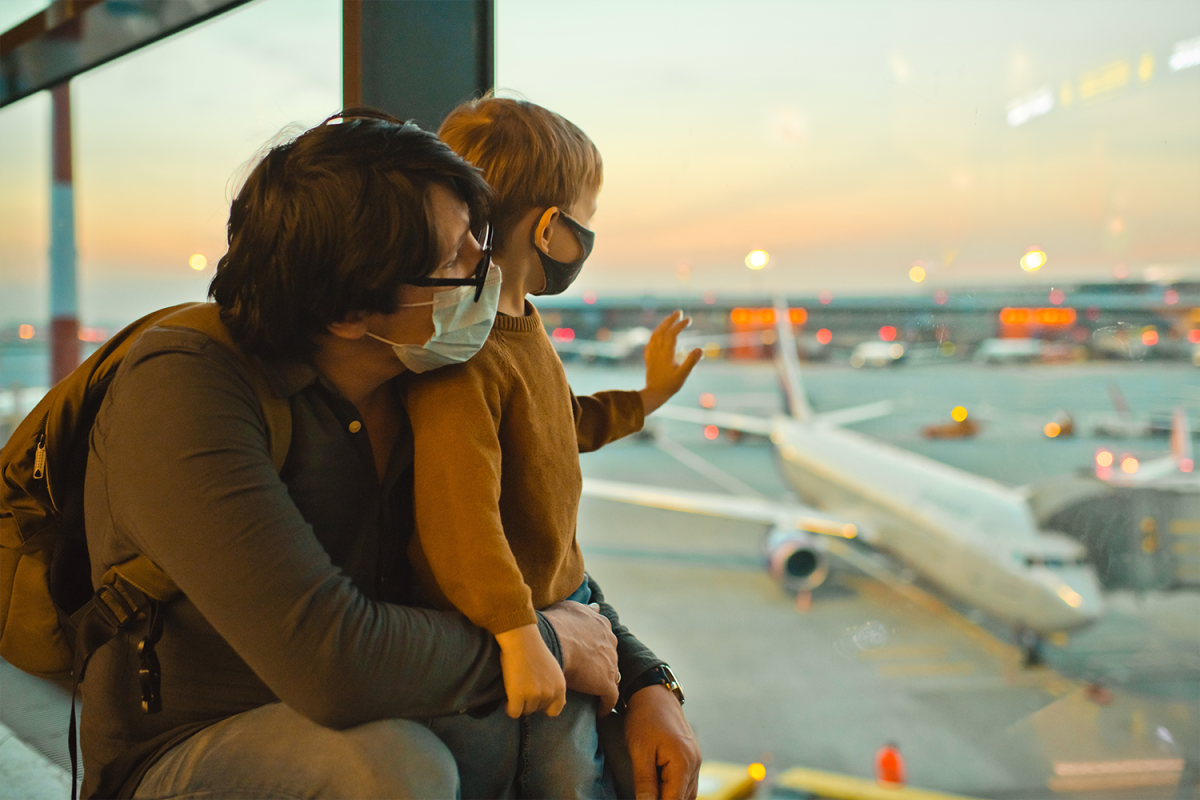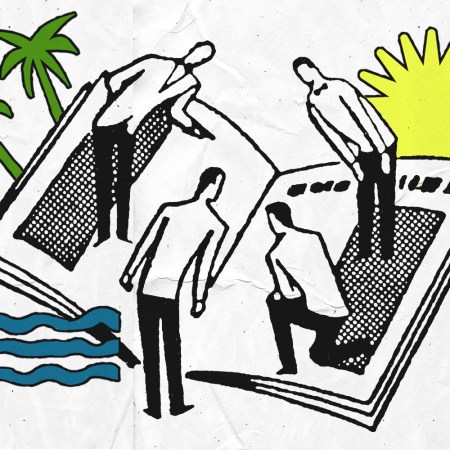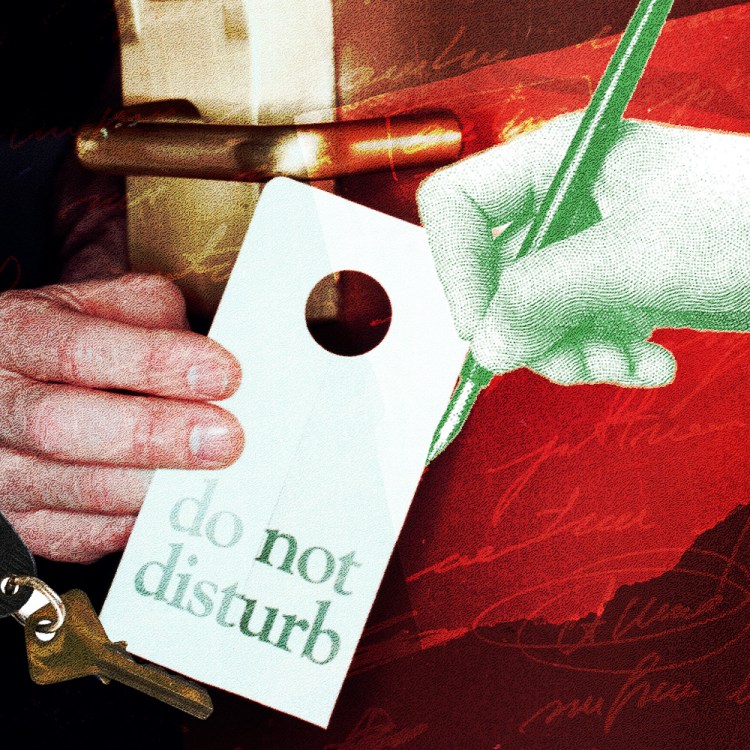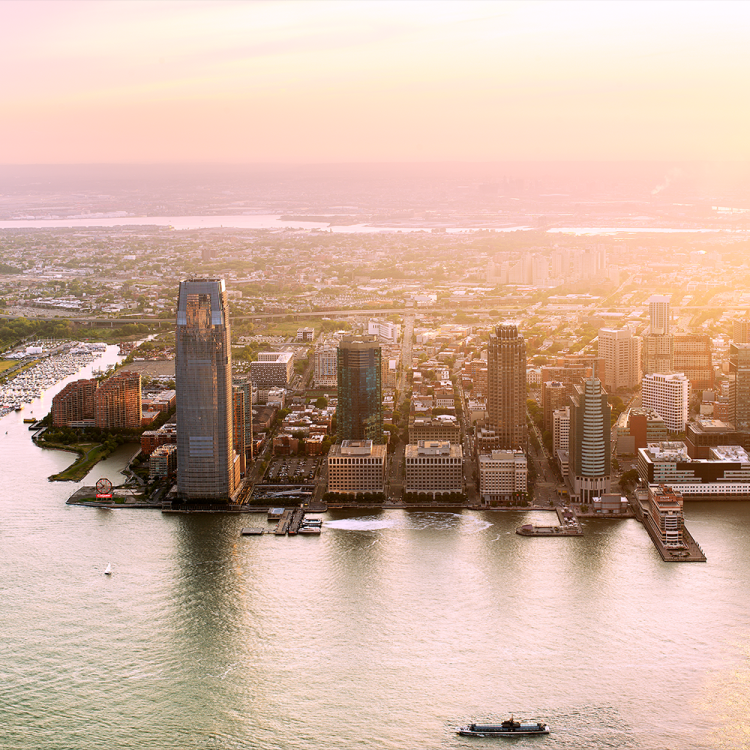We’re just mere days out from Christmas and New Year’s, and thus encroaching on some of the busiest travel days of the entire year. In relatively predictable fashion, Omicron has entered the chat.
The latest and most transmissible COVID-19 variant is currently the most dominant strain of the virus wreaking havoc around the globe, just in time for everyone to head home for the holidays. The difference between this year and last, however, is that fewer people seem to be canceling travel plans in light of the most recent outbreak — reports of new cases in New York have spiked than 80 percent over the last two weeks — or, frankly, reacting at all.
Shortly after the news of Omicron broke, an Axios-Ipsos poll reported that just 23 percent of Americans polled were likely to cancel holiday travel plans in response to the variant. That’s because many Americans are experiencing pandemic fatigue, or, as Northeastern University political scientist David Lazer told The Atlantic, “We’ve become habituated.” While the threat hasn’t necessarily lessened, we’ve seemingly surrendered to the current circumstances.
But the fact of the matter is this: our collective lack of vigilance — in regards to vaccines, masks, travel advisories, etc. — is the exact reason we’re here today. Still, if you plan on traveling this week, there a few things you should keep in mind (though, frankly, my sincere hope is that this isn’t the first time you’re hearing them). So, begrudgingly, let’s review the important points one more time …
1. There will be traffic
According to AAA’s 2021 Year-End Travel Forecast, “More than 109 million people — an almost 34 percent increase from 2020 — will travel 50 miles or more as they hit the road, board airplanes, or take other transportation out of town between Dec. 23 and Jan. 2.” More than 100 million of those people are expected to drive — only slightly fewer than what we saw in 2019 — in spite of continually rising gas prices. It would behoove you to do a quick search of peak times in your area to see when major delays are most likely (they vary, particularly when looking at major metro areas), though December 23 and January 2 are notoriously unpleasant days to be behind the wheel.
Bonus tip: If you can, restrict the pit stops you make while en route to your final destination to rest stops or vital gas refills to reduce the potential for last-minute infection.
2. Airports are going to be crowded
If Thanksgiving was any indication of what’s to come … buckle up. On November 28, the Sunday after Thanksgiving, a pandemic record was set when TSA screened more than 2,451,300 travelers in a single day — about 85 percent of the volume screened on the same day in 2019, prior to the onset of COVID. According to CNN, “the previous record was the front bookend of the holiday, Wednesday, November 24.” Per CEO Scott Kirby, United Airlines has yet to experience a notable uptick in cancellations on domestic flights and “demand has not dropped off.” And it stands to reason that if people haven’t canceled at this stage, they probably aren’t going to. Get to the airport early and prepare for long lines.
Bonus tip: As Saahil Desai points out, planes are pretty well ventilated, but do still be vigilant about wearing your mask — particularly while your seatmates are eating. If you’re still concerned about ventilation, the overhead AC can also be effective tool in helping to “disperse any bits of the virus that are floating around.” Lastly, respect your flight attendants. It’s the most wonderful time of year … there’s no need to be a dick.
3. Expect everything to cost more
Gas isn’t the only thing you should expect to pay more for over the course of the next few weeks. If you haven’t secured airfare, a rental car or accommodations yet … be prepared for a premium. According to AAA, mid-range hotel rates have increased 36 percent from last year, car rentals by 20 percent and airfare by 5 percent — and that’s if you can even find them. My best advice if you’ve waited this long is to look for bundle deals and be willing to expand your search.
Bonus tip: If you’re renting a car, you’ll likely save money getting one from anywhere that isn’t an airport.
4. Know the requirements in your destination ahead of arrival
While they may be exponentially more lax than what they once were, rules and regulations still vary from significantly from place to place. At present, I am required to show proof of vaccination to enter any bar or restaurant in NYC, but when I (fingers crossed) travel Upstate in a days time to see my parents, that same sentiment will no longer ring true. All of this to say: Be prepared. While you don’t need a negative COVID test or proof of vaccination to fly domestically, you do need — at the very least — the former to travel virtually anywhere internationally. Similarly, the U.S. is now requiring that all incoming international travelers show a negative test taken within one day of departure, regardless of vaccine status or country of origin.
Bonus tip: Print all of your documents — COVID test results, screening forms, etc. — out in advance. Some places may require hard copies or, you know, your phone might die. Also keep a backup at-home rapid test in your carry-on in the event of emergencies. I always have one of these from Amazon on hand.
5. Don’t travel if you have COVID
I feel like I shouldn’t have to say this, but just in case, a reminder: not seeing your loved ones for the holidays is not worse than giving said loved ones COVID. Get tested before traveling. And if you test positive? Consider this your permission to sit this one out.
No bonus tip. Just don’t do it.
This article appeared in an InsideHook newsletter. Sign up for free to get more on travel, wellness, style, drinking, and culture.

























